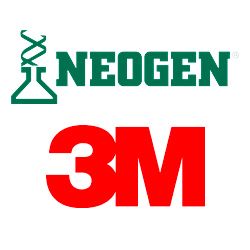Animal Testing Ban for Cosmetics Loses Ground in Europe
European Court rejects Symrise appeal to avoid animal testing
Symrise is dealt another blow in its quest to fend off regulators ordering the cosmetic manufacturer to perform animal testing on two of its ingredients targeting sun care products.
The German cosmetics manufacturer appealed a decision by the European Chemicals Agency (ECHA), which requires the company to conduct animal testing on homosalate and 2-ethylhexyl salicylate — two ingredients already approved and used exclusively in sunscreens.
“Anger and disbelief” over court decision
The General Court is the first level of the European Court of Justice. It ruled yesterday that animal tests must be carried out under REACH — the EU’s primary chemicals legislation — when no other non-animal alternatives are available.
The ruling acknowledges Article 25 of REACH, whereby manufacturers must find information and data by methods that do not involve animal testing and involve animals “only as a last resort.”
Cruelty Free Europe (CFE) is a member of Cruelty Free International (CFI) and worked on the appeals on behalf of Symrise. The animal protection charity expresses “anger and disbelief” over the General Court’s decision.
PETA is also against the ruling, with Dr. Julia Baines telling Personal Care Insights “the animal testing ban brought about a boom in the development of sophisticated and more relevant non-animal methods for assessing the safety of cosmetics and their ingredients.”
“Superior approaches use cutting-edge technology, such as three-dimensional tissue models and advanced computer simulations, and combine these with exposure data in a next generation risk assessment approach to comprehensively assess the safety of cosmetics without harming animals.”
Chemical sunscreen ingredients in the spotlight
European regulators are focused on two ingredients, which are chemical ultraviolet light filters and used as sunscreen ingredients:
Homosalate is an organic compound made by the Fischer–Speier esterification of salicylic acid and 3,3,5-trimethylcyclohexanol, a hydrogenated derivative of isophorone.
2-ethylhexyl salicylate is a benzoate ester and a member of phenols. It is functionally related to a salicylic acid.
CFE claims the toxicity testing required by ECHA affects over 5,500 animals, including rats, rabbits and fish that are force-fed the ingredients in tests, leading to a high degree of suffering before the animals are killed and dissected.
Ruling jeopardizes existing animal testing bans
The animal protection group argues the court decision makes meaningless EU and UK bans on animal testing in cosmetics. It points to REACH legislation being enforced by ECHA, which essentially sees animal testing requirements as taking precedence over bans on animal testing to analyze the safety of new chemicals.
The charity also stresses that after ECHA told Symrise it must test the above-noted chemicals on animals, the UK dropped its ban (in place since 1998), using ECHA’s move as justification for its decision.
The EU ban came into effect two decades ago, but CFE’s director of science and regulatory affairs, Dr. Emma Grange, is concerned that it may change too.
“...this case will set a damaging precedent in toxicity testing for cosmetics ingredients, even if they have been approved as safe for use for many years. Over 1.2 million European citizens expected their demands to be heard when they signed our ECI, but they have not. The public has every right to feel their trust in the cosmetics bans has been undermined,” she says.
Longstanding court battle
In 2018, ECHA first notified Symrise that animal testing was required for the chemicals. The cosmetics manufacturer appealed the decision, but in 2021, it was dismissed by ECHA’s own Board of Appeal.
Grange sees the decision as a “huge backwards step in our fight to stop animals suffering and dying in the name of beauty.”
“The existing bans, which have been in place in the UK for 25 years and in the EU for two decades, are now virtually meaningless, as this case will set a damaging precedent in toxicity testing for cosmetics ingredients, even if they have been approved as safe for use for many years.”
Please feel free to contact us for questions, panel discussions, as well as further details on this topic.



